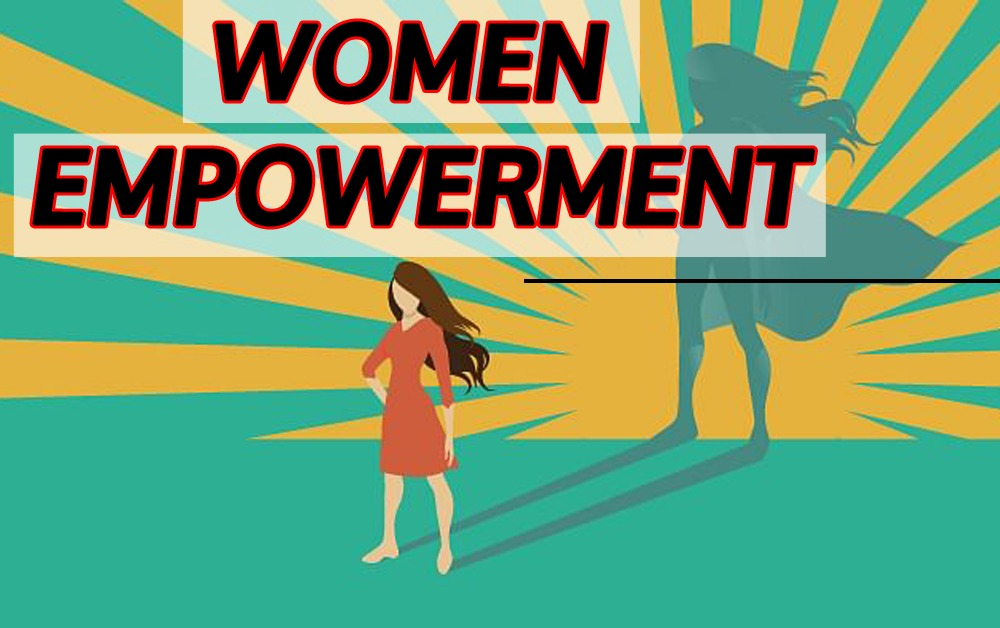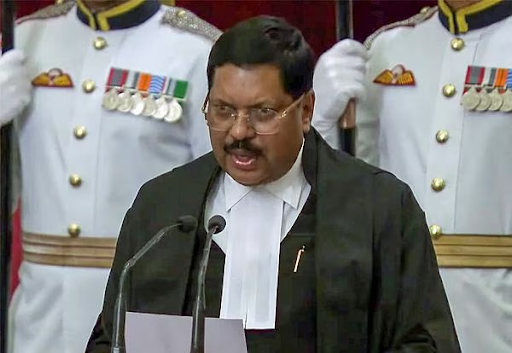Description

Copyright infringement is not intended
Context: The Union Minister of Women and Child Development has informed the Rajya Sabha about the Steps taken for Women Empowerment.
Details
- The Government of India has taken various steps to ensure empowerment of women through their social, educational, economic and political uplifting through various schemes.
Challenges faced by women
- Women from all classes, religions, castes and ethnic backgrounds experience day to day life challenges in multiple ways.
- Low levels of education & Skill, Healthcare services and facilities are not easily accessible to them.
- Experience high levels of violence at home and outside.
- Caste‐based discrimination is faced even in urban area.
- SCs, STs, and Muslim women lag behind in almost all key socio‐economic indicators of development.
- Numerous socio‐cultural, psychological and economic factors make them vulnerable and marginalised.
- Windows experience alienation, social taboos, limited freedom to remarry, insecure property rights, social restrictions on living arrangements, restricted employment opportunities, emotional and other forms of violence and lack of social support.
- Elderly Women face abuse, including physical abuse.
- Health needs are neglected and poor nutrition and food intake makes them more vulnerable.
- Disabled girls are less likely to attend schools than disabled boys.
- Sexual abuse is quite common especially among women who are mental challenged.
- Women in Sex Work face discrimination, experience social exclusion, stigmatization and lack access to basic services and support systems. Healthcare, housing, livelihood opportunities, protection from violence etc are not accessible to them.
- Lack of access to Public spaces like park market schools and workplaces. Lack tangible and intangible infrastructure such as last Mile public transport, access to toilets and basic amenities, child care facilities for working Mothers, Healthcare etc.
Steps taken by the Government
- Beti Bachao Beti Padhao to address the declining Child Sex Ratio.
- PM Matru Vandana Yojana (PMMVY) Providing Cash incentives for improved health and nutrition to Pregnant and nursing mothers.
- Scheme for Adolescent Girls aims at girls in the age group 11-18, to empower and improve their social status through nutrition, life skills, home skills and vocational training.
- Pradhan Mantri Mahila Shakti Kendra scheme to promote community participation through the involvement of Student Volunteers for the empowerment of rural women.
- National Crèche Scheme to provide day-care facilities to children of the age group of 6 months to 6 years of working women who are employed.
- Rashtriya Mahila Kosh (RMK) to provide micro-credit to poor women for various livelihood support and income-generating activities at concessional terms.
- Swadhar Greh to provide relief and rehabilitation to destitute women and women in distress.
- Ujjawala, a Comprehensive Scheme for the prevention of trafficking and for rescue, rehabilitation, reintegration and repatriation of victims of trafficking for commercial sexual exploitation.
- Working Women Hostels for ensuring safe accommodation for women working away from their place of residence.
- One-Stop Centre (OSC) and Women Helpline (WH) are being implemented to facilitate access to an integrated range of services including medical aid, police assistance, legal aid/ case management, psychosocial counselling and temporary support services to women affected by violence.
- Gender Budgeting Scheme is being implemented as a tool for mainstreaming gender perspective at various stages of planning, budgeting, implementation, impact assessment and revisiting of policy/programme objectives and allocations.
- Protection of Women from Domestic Violence Act 2005
- Protection against all forms of Violence: Physical, Economic, Social, and Psychological.
- Immediate Support to women victims: Shelter, Medical facility, Protection, Compensation.
- Maintenance orders as well as orders for temporary Custody of Children.
- Emergency Response Support System Set up under Nirbhaya Fund.
- Mahila Police Volunteers, to report the incidences of violence against women.
- Extending Maternity Leave duration From 12 weeks to 26 weeks.
- Mahila e-Haat, online digital marketing Platform for women.
- New Passport Rules, Submission of father's name is not mandatory, Does not need to Submit her/his marriage/divorce Certificates.
- Dowry Prohibition Act, 1961, Penalizes Giving & taking.
- SABLA Scheme, Providing life Skills and Supplementary nutrition to out of School girls - Working Women Hostel.
- Sexual Harassment electronic-Box (SHe-Box) - Women Safety Division in Ministry of Home Affairs.
- National database on Sexual offenders, include name, address, Photograph and fingerprint details of those Convicted in Sexual assault Cases.
- To ensure economic independence of women through skill development and vocational training, the Government has also introduced the Skill India Mission.
- There are schemes like Pradhan Mantri Mudra Yojana and Stand Up India, Prime Minister’s Employment Generation Programme (PMEGP), for helping the women to set up their own enterprise.
- Under the Swachh Vidyalaya Mission, it was ensured that all schools have at least one functional toilet for girls.
- Pradhan Mantri Ujjwala Yojna (PMUY) aims to safeguard the health of women by providing them with clean cooking fuel and also from drudgery of collecting firewood.
- The Mahatma Gandhi National Rural Employment Guarantee Act, 2005 (MGNREGA) mandates that at least one third of the jobs generated under the scheme (MGNREGS) should be given to women.
- The Government of India has also decided to implement the Umbrella Scheme for Safety, Security and Empowerment of Women as an integrated women empowerment program under the name ‘Mission Shakti’, for addressing the issues of women on a life-cycle continuum basis and for making them equal partners in nation-building through convergence at different levels of governance and a participative approach.
- The National Education Policy (NEP), 2020 prioritises gender equity and envisions ensuring equitable access to quality education to all students, with a special emphasis on Socially and Economically Disadvantaged Groups (SEDGs).
Steps need to be taken
- Provide loans, infrastructure and market facilities for women’s cooperatives and groups, and marketing of their products.
- Recruit women into all levels of the police force, and increase their numbers in the police force.
- Training and awareness programmes for women representatives in the Panchayati Raj institutions.
- Review and update current schemes to assess their effectiveness in terms of social indicators.
- MGNREGS should be enhanced in Adivasi areas, with greater focus on works that empower women in direct and indirect ways.
- Ensure safe migration and prevent trafficking.
- Effective implementation of the inter‐state migration act and trafficking laws.
- Registration of property including land jointly in the name of wife and husband at the time of marriage itself should be made mandatory.
- Social security support should also be expanded to all single women and universalized.
- Ensure children of sex workers to have access to education, nutrition and healthcare.
Way forward
- Stricter laws are not enough, time bound disposal of justice essential to prevent Crimes against Women.
- Need to address the special needs of single women such as widows, separated, divorced, never-married and deserted women including women-headed households and single women living within households.
- When we empower the women in a family, we empower the entire house-hold. When we support women's education, we ensure that the entire family is educated. When we facilitate her good health, we help keep the entire family healthy. When we secure her future, we secure the future of the entire home.
https://www.pib.gov.in/PressReleasePage.aspx?PRID=1808708













